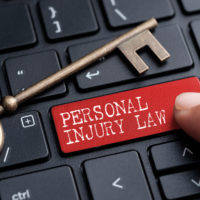Are Liability Waivers Enforceable in Florida?

Companies and organizations use liability waivers all the time. A gym might use a liability waiver to release itself of liability should a member be harmed by a piece of equipment. A little league organization might use a waiver to protect itself from assuming financial responsibility should a participant sustain an injury during play. A cruise line might ask guests to sign a waiver upon purchase of a ticket so that it is not forced to assume accountability for the actions of another passenger or employee or for any dangerous conditions. In many instances, a court will recognize liability waivers as the documents they are: acknowledgement of two parties that dangers exist and that parties are aware of said dangers but choose to engage in a dangerous activity and/or in an activity on a dangerous property regardless of possible risks. In others, however, courts may view liability waivers unfavorably and deem them unenforceable.
At Spencer Morgan Law, our Miami personal injury attorneys are highly familiar with Florida case and statutory law. If you were injured on another person’s property and wish to collect damages, and if the other party has tried to use liability waivers as a defense (or if you suspect he, she, or it may attempt to do so), reach out to our lawyers for the assistance you need today.
Requirements for Enforceability of a Liability Waiver
According to a Strafford presentation, Florida recognizes four distinct factors that render a liability waiver unenforceable. Those factors are as follows:
- Unclear and Ambiguous Language: If a contract does not clearly articulate in understandable terms the actions for which a party may be entitled to the limitation or elimination of liability, the waiver is unenforceable. Moreover, case law states that exculpatory clauses are enforceable only where and to the extent that the intention to be relieved was made clear and indisputable in the contract. The wording must be so understandable that any ordinary and comprehending party would know what he or she was contracting away. However, per one precedent, the release need not list every possible way in which the releaser can be injured in order for the waiver to be valid.
- Unclear Intent: In addition to outlining precisely what rights the releaser is giving up in clear and unambiguous terms, the contract must also clearly articulate in clear and unequivocal terms the releasee’s intent to limit or eliminate his or her own liability for his or her acts of negligence. Moreover, if a party wishes to be relieved of responsibility for present and future activities or events, the contract must clearly state this.
It is important to keep in mind that while in many states a contract must use the word “negligence” when referring to from what the defendant is free of liability, Florida does not. Though the courts do disfavor exculpatory clauses, the states do not require contracts to contain express language releasing the defendant from his or her own negligence for the contract to be effective.
- Unequal Bargaining Powers: Finally, for an exculpatory clause to be enforceable, contracting parties must possess equal bargaining powers. If one holds more power over the other, the courts may view the contract as coercion and therefore render the contract unenforceable.
Of course, the courts will take into consideration several other factors, such as whether or not the party that drafted the contract offered insurance via the contract; if the contract was printed in large, bold font; if the contract was signed by several members of the same party; and if a contract contained an implied warranty clause.
When to Contact a Miami Personal Injury Lawyer
If you were injured on another person’s or entity’s property, and if you signed some kind of contract before entering the other party’s premises, you should contact a Miami personal injury attorney as soon after sustaining your injuries as possible. Without a knowledgeable and aggressive attorney on your side, the other party may get away with the liability waiver defense. Do not let that happen. Contact Spencer Morgan Law to work with a team who understands these types of contracts and who can help you prove the agreement to be unenforceable. Call us today to schedule your free consultation.
Resource:
media.straffordpub.com/products/defeating-liability-waivers-in-personal-injury-cases-substantive-and-procedural-strategies-2015-08-27/reference-materials.pdf
